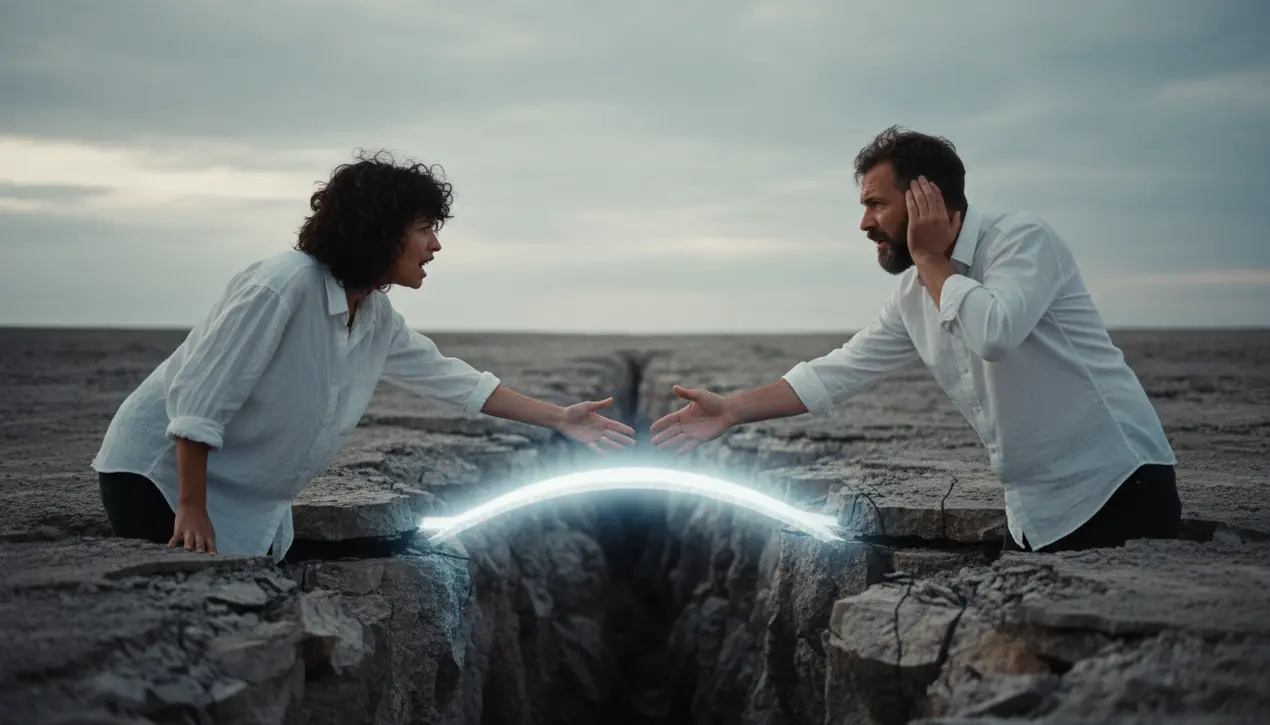
OthereducationEducational Policy
The Art of Listening: Carl Rogers' Antidote to Modern Communication Breakdowns
LA
Laura Bennett
2 hours ago7 min read
It begins with a spark—a connection so electric it seems to bridge the fundamental gap between two separate consciousnesses. Then, inevitably, comes the moment of dissonance: the realization that you and another person are experiencing the same situation in profoundly different ways.Suddenly, you're no longer connected, but clinging to the edge of a chasm of misunderstanding, desperately trying to convince the other of your reality. This scenario plays out daily in relationships, workplaces, and friendships, leaving frustration and isolation in its wake.When the bridge of communication crumbles, where do we begin repairs? In 1951, against the backdrop of Cold War tensions, pioneering psychologist Carl Rogers addressed the Centennial Conference on Communications at Northwestern University with a revolutionary perspective. Rogers, whose person-centered approach transformed psychotherapy, argued that communication fails not from technical inadequacy, but from empathic deficiency.He introduced 'active listening' as an antidote—a practice requiring us to suspend our judgments and fully enter another's subjective world. This approach goes beyond hearing words to understanding the emotions and meanings beneath them, making it a radical act in our polarized, reactive era.Consider Sarah and Mark, a couple trapped in cyclical arguments about finances. Sarah interpreted Mark's practical solutions as dismissals of her anxiety, while Mark saw her emotional responses as irrational.Their breakthrough came only when they paused to genuinely reflect each other's feelings. 'So you're scared that without aggressive saving, our future feels unstable,' Mark finally acknowledged—and their defensive walls began to crumble.Rogers identified three essential conditions for overcoming such impasses: unconditional positive regard (accepting others without judgment), empathic understanding (sensing another's world as if it were your own), and congruence (being authentic in your responses). These stances require vulnerability that contradicts our instinct to defend our own reality.In an age saturated with digital chatter and performative debate, Rogers' wisdom reminds us that true communication occurs not in winning arguments, but in the shared, vulnerable space of mutual recognition. It's in this space that breakdowns can transform into breakthroughs, paving the way for deeper connection and understanding.
#communication
#psychology
#Carl Rogers
#conflict resolution
#relationships
#featured
Stay Informed. Act Smarter.
Get weekly highlights, major headlines, and expert insights — then put your knowledge to work in our live prediction markets.
Related News
Comments
Loading comments...
© 2025 Outpoll Service LTD. All rights reserved.